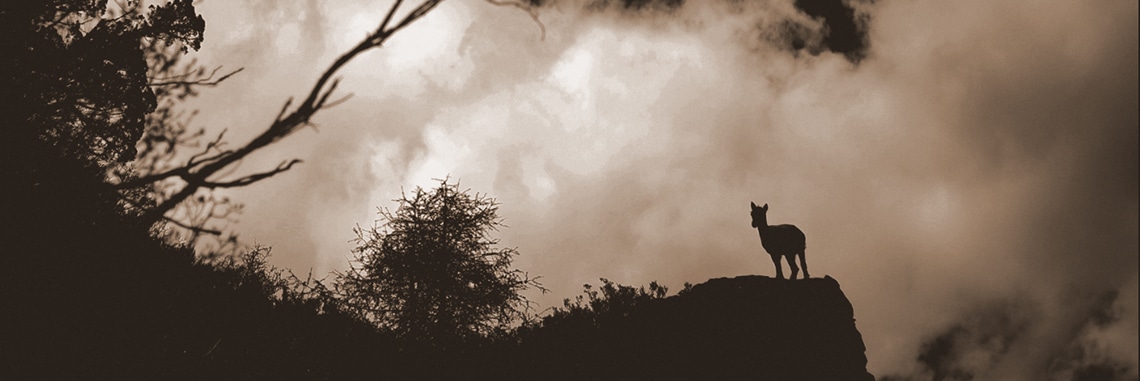
Choosing Love in a Time of Evil
The Modern Disguise of Evil
Monday, May 17, 2021
Reporting on the 1961 trial of Adolf Eichmann, one of the architects of the Holocaust, the Jewish philosopher Hannah Arendt (1906–1975) used the phrase “the banality of evil.” It is a shocking phrase to many because it flies in the face of our idea that evil is demonic, monstrous, and villainous, something that everybody immediately recognizes as grotesque and terrible. Arendt’s phrase actually helps explain how the Holocaust or Shoah (catastrophe) could happen. Somehow evil became commonplace.
In his introduction to Arendt’s book Eichmann in Jerusalem: A Report on the Banality of Evil, Israeli journalist Amos Elon writes:
[Arendt] concluded that Eichmann’s inability to speak coherently in court was connected with his incapacity to think, or to think from another person’s point of view. . . . He personified neither hatred or madness nor an insatiable thirst for blood, but something far worse, the faceless nature of Nazi evil itself . . . aimed at dismantling the human personality of its victims. The Nazis had succeeded in turning the legal order on its head, making the wrong and the malevolent the foundation of a new “righteousness.” In the Third Reich evil lost its distinctive characteristic by which most people had until then recognized it. The Nazis redefined it as a civil norm. . . . Within this upside-down world Eichmann . . . seemed not to have been aware of having done evil. [1]
As both Thomas Aquinas and C.S. Lewis taught, for evil to succeed, it must disguise itself as good, which is apparently much easier to do than we imagine. [2] What previous generations called “the devil” is still quite active, though disguised in the banality of evil. The devil isn’t going to appear in red with horns and a tail and entice us to follow him. When Paul talks about the devil, he uses words like “powers,” “principalities,” and “thrones” (see Colossians 1:16). These are almost certainly his premodern words for what we would now call corporations, institutions, nation-states, ideologies of supremacy, and organizations that demand our full allegiance and thus become idolatrous—not just “too big to fail,” but even too big to be criticized. Suddenly, the medieval notion of devils comes very close to home.
We must first convict evil in its glorified organizational form. When we idolize and refuse to hold such collective realities accountable, they usually become demonic in some way. We normally cannot see it until it is too late. [3]
Hannah Arendt wrote, “The sad truth of the matter is that most evil is done by people who never made up their minds to be or do either evil or good.” [4] While evil may reside primarily in “corporate” form, the resistance to it begins with us as individuals. The rest of this week is dedicated to the stories and wisdom of individuals who made a clear decision to confront evil and hatred with goodness and love, even at the risk of their own lives.
References:
[1] Amos Elon, introduction to Eichmann in Jerusalem: A Report on the Banality of Evil, by Hannah Arendt (Penguin Books: 1963, 2006), xiii.
[2] Aquinas describes the devil’s deception through evil “that has a semblance of good” in his meditation on the Lord’s Prayer. See The Three Greatest Prayers: Commentaries on the Lord’s Prayer, the Hail Mary, and the Apostles’ Creed, based on trans. by Laurence Shapcote (Sophia Institute Press: 1990), 152. Lewis’ The Screwtape Letters (1942) offers numerous examples of the ways evil presents itself as desirable.
[3] Richard Rohr, What Do We Do with Evil? The World, the Flesh, and the Devil (CAC Publishing: 2019), 50, 51.
[4] Hannah Arendt, The Life of the Mind, vol. 1: Thinking (Harcourt Brace Jovanovich: 1977), 180.
Story from Our Community:
Coming face-to-face with natural evil has caused me to feel at the mercy of an unfriendly universe—one out of control and without any center of gravity. I regained my spiritual wings by praying in total acceptance and surrender. Instead of striving for proper feelings or greater faith, I simply abide with Jesus on the Cross. Likewise, when I meditate on Jesus’ anxiety in the Garden of Gethsemane, I forget my own. Like the Christian mystics who emphasized unknowing, this can lead to a deeper faith, perhaps more ambiguous and mysterious, but ultimately more sustaining. —Gail B. A.

